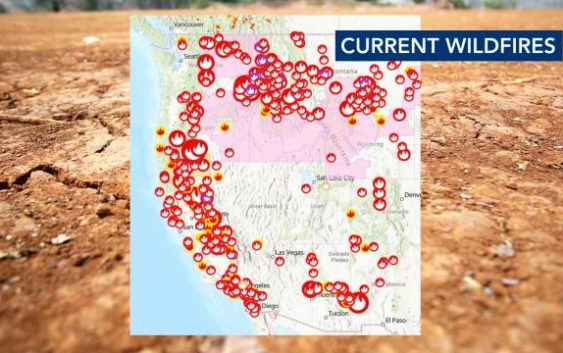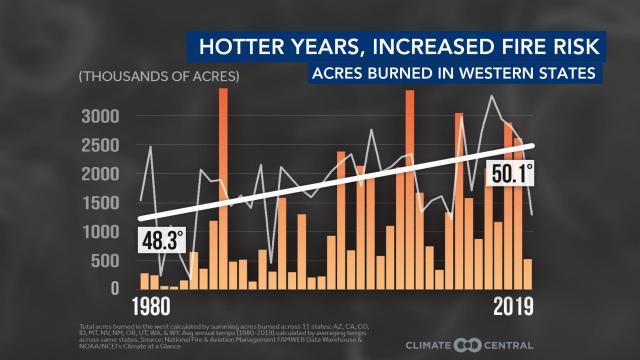- The deadliest tornadoes to ever hit Austin
- Whiteville resident recalls events from Tuesday nights tornado
- Tornado damage reported in southern NC after Tuesday's severe storms
- If your home floods, here are steps you can take to address mold
- WATCH: Video Shows Confirmed Tornado touches down in Columbus County
Haze from western wildfires hampers visibility in NC, makes breathing difficult for some

Raleigh, N.C. — Do you notice a haze to the sky or perhaps smell a little bit of smoke in the air outside? Believe it or not, smoke from wildfires over the western part of the United States and even Canada is traveling all the way across the country and has made it to North Carolina.
The smoke prompted a Code Orange alert for air quality over nearly all of North Carolina on Thursday.
The alert means the environment outside could be unhealthy for sensitive groups and people with existing conditions. Young children, the elderly and those with heart and lung disease and people exercising are encouraged to limit time outdoors.
“It’s a rare day to have a Code Orange day in North Carolina, said Taylor Hartsfield, regional office supervisor at the North Carolina Department of Environmental Quality.
The last one linked to smoke or “fine particulate matter,” as it is described by DEQ, came in 2017.
DEQ has two air quality monitoring stations across the state that can monitor for smoke.
The state monitors the air quality and releases the next day’s forecast each day at 3 p.m.
There are currently 80 large wildfires spanning 13 states out west. The largest fire is the Bootleg Fire in Oregon, burning more than 350,000 acres so far and only 30% contained.
The fire season has grown longer and more extreme in recent years. As the globe continues to warm and our dry spells become more extreme out west, this trend is likely to continue. Sixty-four percent of the western United States is currently experiencing an extreme drought.
Twenty-eight percent of the western U.S. is in an exceptional drought.
Normally, western wildfires are a news story to us and don’t have any major impacts on North Carolina, but our current jetstream pattern is sending some of the smoke from those fires to our part of the country.
“The air quality right now is smoky,” said state meteorologist Elliot Tardif. “You can smell it and see the haze. This type of thing doesn’t happen here often.”
Tardiff said some people could experience wheezing, coughing or sneezing.
Those who are sensitive to particle pollution might want to reduce the amount of time yspent outdoors through Friday.
For amateur photographer Bill Witbeck, the haze is a hassle, a hinderance to his attempt to capture trains coming at going at Raleigh’s Union Station.
